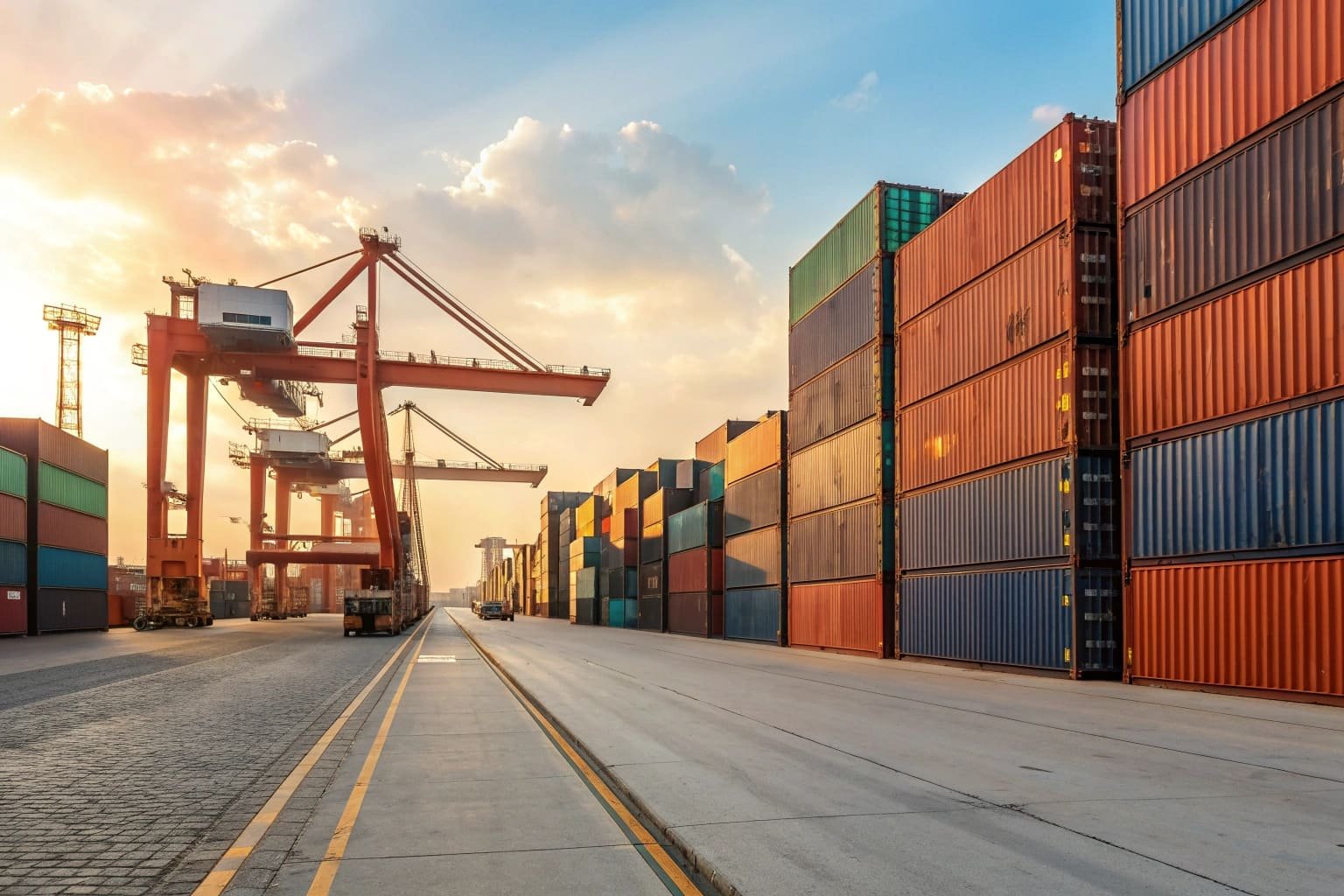Many importers face unexpected costs and delays due to customs regulations. Without a customs bond, your shipments could face significant setbacks, impacting your business. A customs bond ensures smooth customs clearance and protects your financial interests.
What is a Customs Bond?
A customs bond is a form of insurance that protects the U.S. Treasury if an importer fails to pay required duties, taxes, fines, or fees on their imports. These bonds are purchased from government-licensed surety companies and are a critical requirement for importing goods into the United States, ensuring compliance with Customs and Border Protection (CBP) regulations.
Customs bonds simplify the import process, making sure your goods clear customs quickly. Let's explore how they work and why they are essential for importers.
How Does a Customs Bond Work?
Customs bonds play a crucial role in expediting the customs clearance process. When you have a customs bond in place, it guarantees the CBP will be paid immediately if any additional import duties, taxes, or fees are assessed. This allows your goods to pass through customs without delays, even if payment isn't made upfront. Essentially, it acts as a security measure to ensure compliance with U.S. customs regulations.
The Mechanics Behind Customs Bonds
Customs bonds function as a three-party agreement involving the importer (principal), the surety company (bond issuer), and the CBP (obligee). Here's how it works:
- Importer Obligation: The importer is responsible for complying with all import regulations, including payment of duties, taxes, and other fees.
- Surety's Role: If the importer fails to fulfill these obligations, the surety company covers the cost up to the bond amount, acting as a financial backup.
- CBP Assurance: The customs bond assures the CBP that they will receive all due payments, minimizing risk when dealing with importers.
This structured approach ensures the government receives the required funds even if the importer defaults, making customs bonds a crucial part of international trade.
Continuous Compliance
Importers are legally obligated to comply with U.S. customs laws and regulations, which include accurate record-keeping, reporting, and payment of duties. Failure to comply can result in heavy fines, penalties, and even suspension of import privileges. A customs bond serves as a compliance tool, holding the importer accountable and protecting the financial interests of the U.S. government.
How Much Does a U.S. Customs Bond Cost?
The cost of a customs bond varies depending on the bond type, the value of the shipment, and the risk level assessed by the surety company. Here's a detailed breakdown:
Single-Entry Bond Costs
- Calculation: A single-entry bond typically costs around $5.50 per $1,000 of the bond amount, with a minimum fee of $55.
- Usage: Ideal for occasional importers or one-time shipments.
- Example: For a shipment valued at $20,000, the bond cost would be approximately $110.
Continuous Bond Costs
- Calculation: Continuous bonds usually start at a flat fee of around $450 to $500 per year, covering all shipments within that period.
- Benefits: Suitable for frequent importers, as it provides a more cost-effective solution compared to obtaining multiple single-entry bonds.
- Long-term Savings: Regular importers save significantly by using a continuous bond rather than paying per shipment.
The decision between a single-entry and continuous bond should be based on your importing frequency and the volume of goods you handle.
How Long Does a Customs Bond Last?
Understanding the duration and renewal process of a customs bond is crucial for maintaining compliance and avoiding lapses that can delay shipments.
Bond Validity and Renewal
- Single-Entry Bond: Valid for one transaction or shipment, covering the goods from entry to clearance.
- Continuous Bond: Valid for 12 months from its effective date and automatically renews unless explicitly canceled.
Practical Example
Consider an importer who brings goods into the U.S. multiple times a year. Instead of acquiring a new bond for each shipment, they use a continuous bond that renews annually. This ensures uninterrupted compliance and reduces administrative hassle.
Types of Customs Bonds
Customs bonds come in different forms, each designed for specific purposes. Here's a closer look at the most common types of customs bonds:
- Single-Entry Bond: Covers a one-time shipment entering U.S. territory. Best suited for businesses with sporadic import activities.
- Continuous Bond: Provides ongoing coverage for all shipments made by an importer over a year. Recommended for companies that import frequently.
- Importer Security Filing (ISF) Bond: Required for ocean shipments. Ensures compliance with the ISF filing requirements, crucial for cargo arriving by sea.
- Drawback Bond: Allows businesses to claim refunds on import duties for goods that are subsequently exported. It's an excellent tool for companies engaged in re-export activities.
- Warehouse Bond: For goods stored in a bonded warehouse, this bond guarantees payment of duties once the goods leave the storage facility.
Which Bond is Right for You?
Choosing the correct bond depends on your import needs:
- For frequent importers: Continuous bonds are more cost-efficient.
- For infrequent or high-value shipments: Single-entry bonds might be the better option.
When is a Customs Bond Required?
Knowing when a customs bond is necessary can save time and prevent costly delays. Below are common scenarios where a customs bond is mandated:
- Shipments over $2,500: Required for imports exceeding this value threshold.
- Regulated goods: Products that need federal agency approval (e.g., alcohol, firearms) must have a bond.
- Ocean freight: ISF bonds are mandatory for sea cargo, ensuring compliance with advanced filing requirements.
Examples of Regulated Goods
Items like pharmaceuticals, tobacco products, and hazardous materials require a bond due to their stringent import regulations. The bond acts as a guarantee that these products meet all legal and safety standards.
How to Get a Customs Bond
Acquiring a customs bond involves several steps, but with the right guidance, it can be a straightforward process. Here's a step-by-step guide:
- Determine Your Bond Needs: Assess whether you need a single-entry or continuous bond based on your import volume.
- Choose a Surety Provider: Work with a licensed surety company experienced in customs bonds.
- Submit Documentation: Provide details about your business, including shipment values, previous import records, and compliance history.
- Receive a Quote: The surety company will evaluate your application and issue a premium based on risk factors.
- Pay the Premium: Once the payment is made, your bond becomes active.
Factors Influencing Bond Approval
Your business's financial stability, import history, and compliance record can impact the bond approval process and premium rates. Companies with strong credit scores and clean import histories typically enjoy lower rates and faster approvals.
U.S. Customs Bond Surety Companies
The market is filled with surety companies offering customs bonds, but not all are created equal. Here are tips on choosing the best provider:
- Reputation: Opt for companies with a proven track record and expertise in customs bonds.
- Customer Service: Good providers offer guidance and support throughout the bond acquisition process.
- Financial Strength: Ensure the company has solid financial backing to handle potential claims.
Case Study: Real-World Example of a Customs Bond in Action
Let’s consider the case of a small electronics importer. This business imported electronic components valued at $10,000. Without a customs bond, their goods were held at the port, leading to costly delays and storage fees. After acquiring a continuous bond, their future shipments passed through customs smoothly, demonstrating the bond’s role in expediting the process and avoiding financial losses.
Is a Customs Bond Refundable?
Customs bonds are typically non-refundable, regardless of whether the shipment incurs duties. This policy remains in place because the bond guarantees compliance, not just the payment of duties. If an importer doesn't use the full value of the bond, they cannot claim a refund since the bond’s purpose is to cover potential liabilities.
Common Misconceptions
Many importers mistakenly believe that if they don’t utilize the full amount of their bond, they are entitled to a refund. However, the non-refundable nature of customs bonds is standard practice, designed to secure financial compliance at all times.
Benefits of Having a Customs Bond
Beyond regulatory compliance, customs bonds offer several benefits to importers, including:
- Faster Clearance: Speeds up the customs process, reducing delays.
- Cost Savings: Continuous bonds help frequent importers save money.
- Enhanced Credibility: Demonstrates to customs authorities that you are a responsible importer.
Continuous Bond vs. Single-Entry Bond: A Detailed Comparison
To help you choose the right bond, here’s a detailed comparison:
| Feature | Single-Entry Bond | Continuous Bond |
|---|---|---|
| Best for | Occasional importers | Frequent importers |
| Cost | Calculated per shipment | Fixed annual fee |
| Renewal | Not required | Auto-renews annually |
| Coverage | One shipment | All shipments within a year |
Common Pitfalls to Avoid
While customs bonds are essential, many importers make common mistakes that can lead to complications:
- Incorrect Bond Type: Failing to choose the appropriate bond for their import needs.
- Lack of Renewal Awareness: Overlooking the automatic renewal terms of continuous bonds.
- Non-compliance with ISF Requirements: Ignoring the need for ISF bonds on ocean shipments.
Summary
Customs bonds are essential for hassle-free importing, ensuring compliance and protecting your business from unexpected costs. To avoid shipment delays, it's crucial to understand how these bonds work and secure one that fits your importing needs. A well-chosen customs bond not only guarantees smooth operations but also enhances your company's reputation as a reliable importer.






